Covid-19 focused the minds of the wealthy on their legacies – on life, death and what exactly it is they want to leave behind. This is making for novel discussions with their lawyers, Eduardo Reyes discovers
At the table
(from bottom left, clockwise)
Claire Randall, Farrer & Co
Helena Luckhurst, Fladgate
Jenny Cutts, Wedlake Bell
Tim Stalkartt, Evelyn Partners
Sophie Dworetzsky, Charles Russell Speechlys
Charlotte Fairhurst, Evelyn Partners
Frederick Bjørn, Payne Hicks Beach
Clare Stirzaker, Boodle Hatfield
Helen Ratcliffe, BDB Pitmans
Alexander Erskine, Taylor Wessing
Chris Springett, Evelyn Partners
Alex Ruffel, Irwin Mitchell
Eduardo Reyes, Law Society Gazette
Over the next 25 years, it is estimated that $68tn in private wealth will transfer to a new generation globally. That is a staggering sum. Dwarfing the wealth of many nations, it seems to exceed the imagination of Scott Fitzgerald in his most spectroscopic imaginings of the very rich.
But the lawyers who serve the needs of high-net-worth and ultra-high-net-worth clients are not engaged in a search for a diamond the size of the Ritz. The world described by them is composed of more relatable building blocks.
Those blocks are, variously, the manufacturing, services, celebrity, duties or land use that are the source of that wealth; the values and conditions that get attached to a legacy; family ‘governance’; and, increasingly, a search for the ‘purpose’ of that wealth – from philanthropy to environmental considerations. So $68tn is a force in the global economy, and what happens to it – how it is used – matters.
This roundtable meets after ex-chancellor Kwasi Kwarteng’s mini-budget, but before his departure and the government’s full-spectrum U-turn. The negative response of the financial markets threatened economic chaos on top of rising inflation, and war in Ukraine is having widespread effects on the world economy.
'Clients are actually a little bit scared at the assumptions that we’ve had, perhaps, for the last 30 or so years [changing]. Maybe we’re at an inflection point'
Tim Stalkarrt, Evelyn Partners
Such uncertainty has consequences for this group’s clients too. Many plans were made on the basis of greater stability. That is especially true for clients outside the ‘bubble’ of the ultra- or very-high-net-worth bracket.
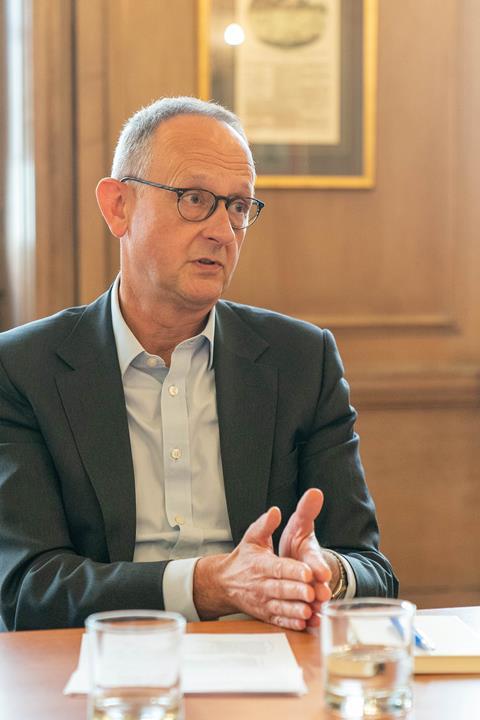
Alex Ruffel, partner at Irwin Mitchell, speaks of ‘things moving very quickly’, and of clients at the point of making changes in their personal life ‘planning, and then getting thrown into chaos’. Examples include a move to a new country that is linked to an investment project, or the purchase of a property that requires bank finance.
Tim Stalkartt of Evelyn Partners, sponsor of this roundtable, says: ‘My experience is clients are actually a little bit scared at the assumptions that we’ve had, perhaps, for the last 30 or so years [changing]. Maybe we’re at an inflection point.
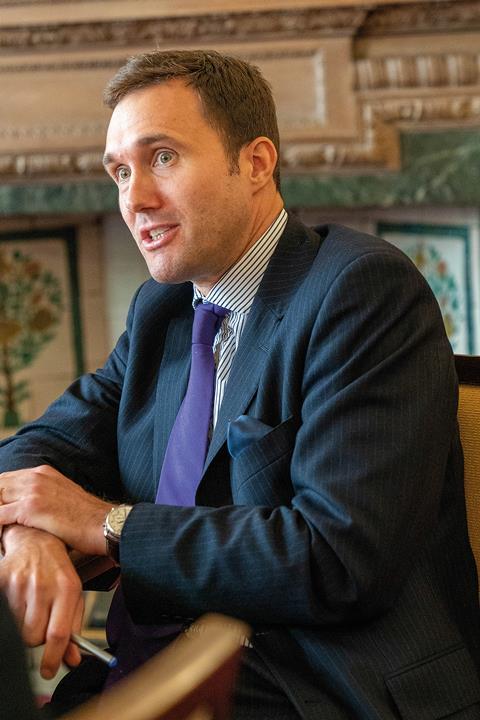
‘A lot of my time at the moment has been spent on the phone… adding a bit of insight and objectivity. I think it’s an opportunity to enhance relationships as well. It’s at times of stress that clients actually need someone they can talk to.’ He adds: 'Cashflow modelling, we were doing a lot of that at the moment, just to, sort of, evidence that even if it goes seriously wrong, you've still got a bit of surplus there to give away.'
The mini-budget included measures aimed at making the UK more attractive internationally by competing on personal tax rates. The government may have now U-turned on the abolition of the 45p income tax band, but at the point this group meets, the policy prompts a discussion on whether such a cut would actually encourage clients to remit more of their foreign income to the UK (to be taxed, but at a new lower rate).
‘There’s a question whether [the tax rate] actually attracts,’ Taylor Wessing partner Alexander Erskine says. ‘From my own perspective, I haven’t had many phone calls about it.’ Instead, he relates ‘more interest from international intermediaries, saying, “What on earth is going on over there?”’.
While the remittance basis of taxation is attractive (even without the mooted cut), BDB Pitmans consultant Helen Ratcliffe points out: ‘The reason people come to the UK is not just because of [the] remittance basis, it’s because they think we’re well-run, stable… what does [the mini-budget] say about us? It’s all looking a little bit turbulent, incoherent.’ Here, the potential impact on the financial services sector is relevant, she adds.
That does not mean tax changes should not be considered, though. ‘It is bizarre,’ Payne Hicks Beach partner Frederick Bjørn reflects, ‘that our greatest tax benefit lies in something [the remittance basis] which encourages you not to bring any of your money into a country and invest.’
Evelyn Partners’ Chris Springett adds: 'I've been giving a talk on tax changes on property, and it's got longer, and longer, and longer. So, I remain interested to see how that's going to continue to develop.'
Giving back
Ultra-high-net-worth clients, aka the super-rich, are insulated from such turbulence, Boodle Hatfield partner Clare Stirzaker notes. But its effects are prompting conversations about the focus of philanthropy. ‘They’ll be even more mindful of the problems that have been faced by people in society… who aren’t wealthy.’ Clients ask whether ‘they are looking at the right courses [of action] given the state of the economy and the state of UK society’, she says.
'Clients are very keen to educate their children and bring their children on in a way that they get involved in charitable work and have that sense of responsibility'
Jenny Cutts, Wedlake Bell
Evelyn Partners’ Springett notes a trend in client intentions when it comes to their ‘legacy’. ‘I’ve seen a lot of clients, particularly first-generation wealth, where they’re not as keen to pass on wealth to their children as, perhaps, previous generations have been. And so charity and charitable giving has been a big part of that,’ he says. Springett stresses, though, that economic instability may make them question that approach.
Wedlake Bell partner Jenny Cutts says charitable work and donations are also used by clients to reinforce a family’s values. She describes clients who are ‘very keen to avoid’ having ‘the cliched trustafarian-type child’. ‘They’re very keen,’ she says, ‘to educate their children and bring their children on in a way that they get involved in charitable work and have that sense of responsibility.’
Trusts
The traditional vehicle for sustaining wealth and benefiting a future generation has been through the creation of trusts. Trusts, though, have been tainted by criticism that they are created only to avoid tax, and that, especially where an offshore trust is involved, they lack transparency. As many clients traditionally protected assets through strict directions and proscriptions, two questions arise. First, how well will a trust cope with an unexpectedly turbulent economic and political world? Second, what happens if beneficiaries are unhappy with the focus of investments for ethical reasons?
‘It depends on how flexible they are,’ Fladgate partner Helena Luckhurst says. ‘In times of uncertainty, have provisional structures been nimble-footed enough to keep pace? Because the trust can be, certainly in discretionary form, an extremely flexible vehicle.’ While ‘older trusts with slightly more inflexible terms obviously will feel the heat a bit more’, she describes the future of trusts as ‘rosy’.
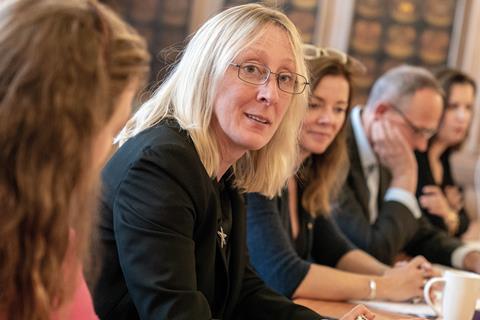
‘It also depends on your objectives,’ Charles Russell Speechlys partner Sophie Dworetzsky continues. ‘Is it tax-driven? Is it for asset protection? Is it about governance?’ Unless an offshore trust is benefiting a client through remittance (see above) ‘trusts are not obvious tax vehicles now’, she says. Yet ‘they remain incredibly attractive from a governance perspective’.
Claire Randall, a partner at Farrer & Co, notes a rise in ‘the company partnership-type structure’ in place of trusts: ‘It is easier to go to many banks with a corporate structure and clear ownership that they understand.’
Where there will be a requirement to show who a ‘beneficial owner’ is for a transaction, a corporate structure may also be more straightforward. Stirzaker notes the growing popularity of ‘family investment companies’, which have the advantage of allowing a division of ‘controlling rights and economic rights’. Here the beneficiaries are more closely involved in decisions, meaning: ‘It’s a nice way of bringing the family together on how they can own and manage that company.’
‘This relates to the reputation of trusts,’ Cutts adds. ‘There’s been a lot of bad press about trusts but actually, the vast majority (and hopefully all the trusts that we deal with) are very much legitimate trusts.’ But following the leak of the ‘Panama Papers’, she says, ‘banks are massively alert’ to their misuse.
Still, as Erskine points out, trusts have legal advantages: ‘The fact [the trust is] old-fashioned has many benefits, because you’ve got several hundred years’ worth of case law, which you don’t have for a number of the new vehicles that are being created in different jurisdictions. There’s a greater degree of unpredictability as to how they’re going to be treated when tested.’
Team work
At the Gazette’s last ‘private wealth’ roundtable, attendees noted the difficulties faced by ‘family offices’ in recruiting the right individuals to manage a family’s affairs. How has the client-facing team changed in this area?
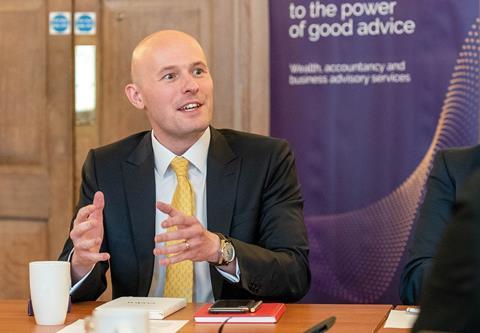
Taylor Wessing’s Alexander Erskine detects ‘quite a lot of consolidation in the market in terms of who is providing the services to the clients’. That has been necessary, he says, ‘because the world has just got that much more difficult – the sorts of professionals that clients need around them has developed’. A ‘single adviser’ faces problems of resource and knowledge.
Evelyn Partners’ Tim Stalkartt notes that his firm now has much greater specialisation among its advisers: 'Our team around the client is a planner, it's a tax specialist, it is an investment manager, and increasingly the lawyers as well.'
Some banks have responded by marketing themselves as a ‘one-stop shop’ for wealthy clients. That has met with a mixed response. ‘I don’t think clients really feel comfortable with that,’ Charles Russell Speechlys’ Sophie Dworetzsky says. ‘I’m not sure it really happens in practice.’ Clients, she says, prefer and are better served by a diverse team of professionals. ‘We are more together than the sum of our parts,’ she adds.
‘There’s no relationship,’ Stalkartt observes. ‘The banks’ model tends to be transactional... I think what the client values, actually, is continuity and knowing they've got that relationship with a core person who can bring in the expert.'
ESG
With ‘a trust created in the 1970s’, Cutts says, the ‘chances are that it’s not going to be what you want, but I think trusts being created now, in the last 10 years, are considerably more flexible. The market’s just incredibly sophisticated’.
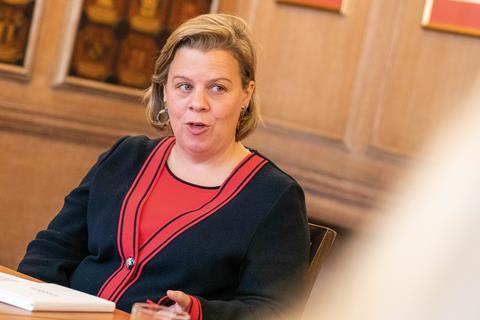
One point of tension resulting from inflexibility in a trust comes when beneficiaries are unhappy with the ethics of some investments. ‘ESG’ (environmental, social and governance) considerations are being increasingly discussed in the context of private wealth.
‘I know there was scepticism about ESG,’ Stirzaker says. ‘But I think certainly for younger beneficiaries, who care very much about how their money is being invested and what difference it’s making to society, that’s becoming an area that’s being focused on more and more.’ As a result, she says, ‘there are some jurisdictions… looking to reform some of their trust laws to facilitate more investment flexibility in that respect.’
‘The whole ESG space has evolved dramatically in the last five years,’ Stalkartt says. ‘So it’s no longer the domain of tree-huggers. It’s now pretty mainstream.’
'For younger beneficiaries, who care very much about how their money is being invested and what difference it’s making to society, ESG is becoming an area that’s being focused on more and more'
Clare Stirzaker, Boodle Hatfield
While it might surprise the authors of September’s mini-budget, attendees relate that clients have become more ‘sanguine about tax’ – minimising the tax they pay is not top of their agenda. ‘I’ve come across younger beneficiaries wanting to pay more UK tax,’ Randall says. In one example, a trust and companies that benefit it are offshore. The client’s question is: ‘I want to pay my fair share but how can I do that while the trustees are still fulfilling their fiduciary duties?’
‘I’ve got a family at the moment who are looking at exactly that point,’ Stirzaker responds. ‘They’re having to discuss it with counsel because it’s really tricky to work out what you can do.’
She adds: ‘For some families, [philanthropy] may give them enough comfort on how they’re managing their contributions to society. But for others, it won’t be enough.’
Lifetime transfers
Clients’ instructions are changing in another regard. Lawyers report a greater interest in passing on assets in their own lifetime. ‘I think that was prompted by the pandemic,’ Cutts says. ‘There was a feeling, after the initial aftershock, that if you’re going to do something, act now… people just feel much more conscious of their own mortality, that things are a lot more unsettled now and a lot more unstable. There’s a lot of work being done to help grandchildren.’
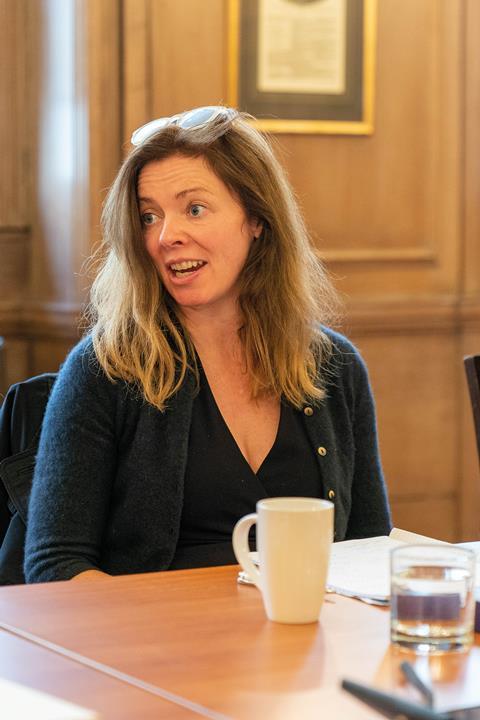
Stirzaker says conversations around ‘family governance’ were begun for the same reason, with clients asking: ‘How do you get succession right when it comes to your business?’ In some instances, gifts of shares have been brought forward, with the intention of ‘getting that next generation used to understanding what it means to be a shareholder of a company and understanding some of the leadership opportunities that arise from that’.
In the same vein, there has been a growing use of ‘family constitutions’. These are non-binding documents that set out how a family agrees it should manage its affairs. ‘I think people can be quite negative and cynical about family constitutions,’ she says, ‘and I’ve seen lots of examples where they haven’t achieved anything. But similarly, I have seen lots of great stories where they really work and families are very proud of their family constitutions and can remember them easily. Not surprisingly, where they’re shorter they’re probably easier to refer to and remember.’
The attempt to draw up such a constitution can, some attendees observe, also highlight where future conflicts between members may occur. It can also clarify roles within a family. ‘In the right context, they can be very valuable tools,’ Luckhurst believes.
The future
Even after its latest U-turns, there is a clear perception in government that the clients of those present have a role to play in delivering growth, and that attracting their foreign counterparts – and their funds – to the UK is important. There is, though, an obvious mismatch between the government’s instincts on the role of tax cuts in ensuring these outcomes, and the priorities outlined by the lawyers who advise this group.
If the reversal of intended tax incentives has a negative effect, it is that it seems chaotic. Dworetzsky says her clients want ‘certainty of the direction of travel’. Post-Brexit, she asks: ‘Is the UK going to decide that it wants to attract inward investment, and wants to attract international ultra-high-net-worths, or are we going to go down a different path?’ There has been little development in that stated aim, she notes.
‘If we are going to attract foreign investment then what’s the goal?’ Erskine asks. ‘Are we going to invest to attract, or are we going to just be a low-tax jurisdiction and try and attract that way? There just doesn’t seem to be any coherence now.’
- This roundtable discussion was kindly sponsored by Evelyn Partners. Their free webinar ‘What’s keeping our clients awake at night and what can we do about it?’ can be seen from 8 November
Photographs by Noah Da Costa























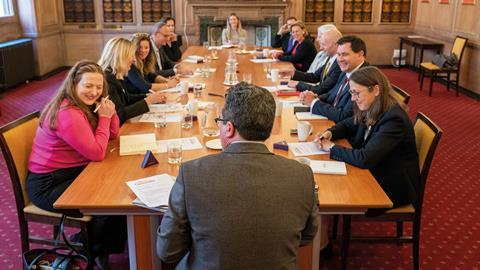













No comments yet